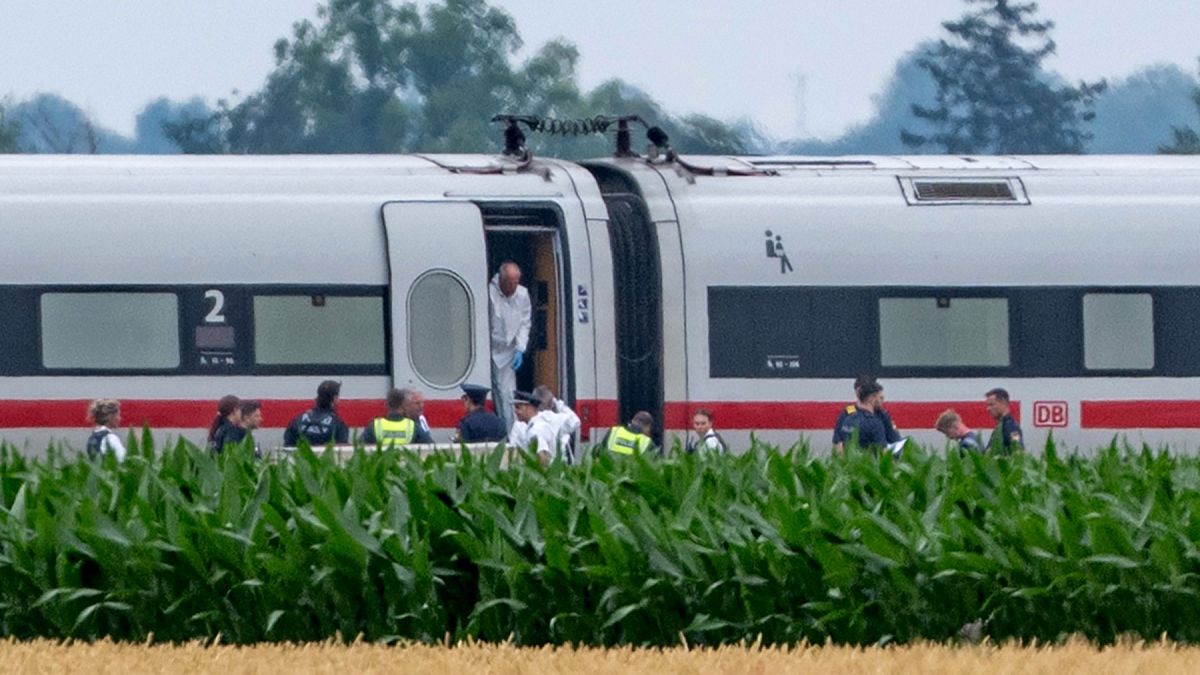

In what has been an eventful span of days, recent incidents across multiple countries have pulled attention to the interconnected and varied nature of global challenges. Each situation, whether occurring on a busy train in Germany or amid the tranquil surroundings of a national park in Zambia, reminds us of the unpredictability of life and the importance of vigilance and compassion.
In Germany, a rogue incident brought unexpected drama to an otherwise routine train journey. A Syrian man, under undisclosed circumstances, wielded a hammer, injuring four passengers aboard an ICE train in the southern region. The German rail operator Deutsche Bahn expressed their solidarity with those affected through a heartfelt statement, underlining their commitment to passenger safety and their hope for the swift recovery of the injured. Law enforcement agencies are currently investigating the motive behind the attack, approaching the situation with diligence and care. The incident serves as a poignant reminder of the broader issues of social integration and mental health that many regions grapple with, urging a collective effort towards understanding and resolving such complexities.
Meanwhile, in Finland, the peaceful setting of Tampere, the country’s third-largest city, was momentarily disrupted by a stabbing incident at a local shopping centre. Several individuals were injured before authorities could apprehend the suspect, reflecting the quick response and coordination among security services. This incident underscores the importance of community safety and the need for continuous dialogue on prevention strategies and support systems for mental well-being, fostering environments where people feel secure and supported.
Turning our gaze towards the Middle East, the ongoing conflict in Gaza reached a harrowing apex with at least 94 Palestinians losing their lives in recent airstrikes. Among those were 45 individuals gathered in aid queues and shelters, exemplifying the profound humanitarian challenges that persistently affect the region. Health officials highlighted the dire need for humanitarian aid, emphasizing the role of international cooperation in alleviating the struggles faced by those in conflict zones. The global community watches with a compassionate resolve, hoping for a peaceful resolution that prioritizes human life and dignity.
In a somber development from Zambia, two female tourists were tragically killed by an elephant during a walking safari in a national park. The encounter, involving a female elephant with a calf, highlights the delicate balance between wildlife conservation and human interaction. Authorities have reiterated the importance of following safety guidelines when engaging with wildlife, while conservationists spotlight the necessity of protecting habitats and fostering harmonious coexistence. This incident serves as a reminder of nature’s raw power and the preciousness of life, urging tourists and locals alike to respect wildlife and adhere to safety protocols.
Back in the urban backdrop of Sydney, Australia, the discovery of two decomposing bodies in a Surry Hills terrace house has puzzled and saddened the local community. The landlord, concerned about the well-being of her tenants, alerted the police, which led to the discovery. Investigations are ongoing, seeking clarity in circumstances that are as intricate as they are tragic. Such incidents highlight a need for community support networks and the role of social services in ensuring the welfare of residents.
Across these varied incidents, from the mechanical rhythms of a train to the raw wilderness of Africa, a common thread emerges: the imperative of empathy, the strength in community support, and the shared duty of fostering safe environments. As the world becomes increasingly interconnected, these events remind us of our collective responsibility to nurture understanding and compassion across diverse settings, bridging differences through dialogue and action.
Source: {link}
